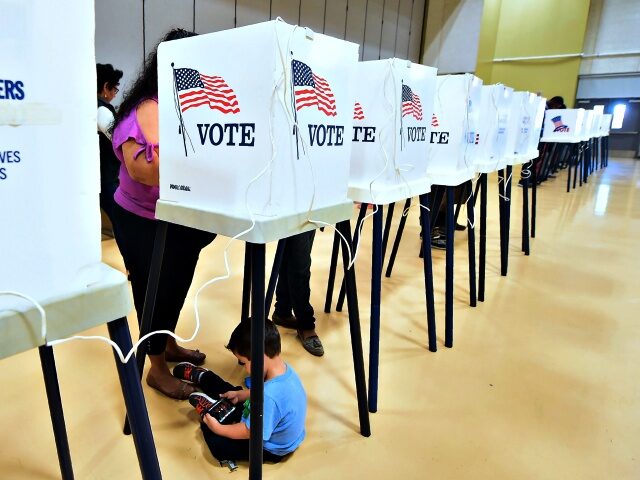Conservatives are hosting an event in Wisconsin on Saturday to warn of the dangers of ranked choice voting, Breitbart News has learned.
Ranked choice voting is also known as “instant runoff voting” and involves allowing voters to rank candidates as their first, second, and third choice candidates (and so on) in the order they prefer them. However, conservatives are holding a “Dangers of Ranked Choice Voting grassroots seminar” at WhirlyBall Brookfield in Brookfield, Wisconsin, to warn of what has been described to Breitbart News as “the background, mechanics, and modern day disenfranchisement of thousands of voters in states as a result of the use of ranked choice voting.”
Describing it as an “eye-opening discussion on the potential pitfalls of ranked choice voting,” the event’s summary urges attendees to “learn about the complexities and consequences of this voting system from our expert speakers.”
Such speakers include state Sen. Duey Stroebel, Joe Giganti of The Regular Joe Show, Waukesha County Clerk Meg Wartman, Voter References’ Gina Swoboda, the Honest Elections Project Action’s Jason Snead, American Constitutional Rights Union Action’s Lori Roman, America First Policy Institute’s Jordan Kittleson, Turning Point Action’s Brett Galaszewski, Save Our States’ Trent England, and the MacIver Institute for Public Policy’s Annette Olson.
According to a description of the event previewed to Breitbart News, the discussions will also focus on the “dark money push” from “out-of-state multi millionaires like Katherine Gehl to influence legislators into adopting this system statewide” in states such as Wisconsin.
In the last legislative session in Wisconsin, Senate Bill 528 to legalize Final Five/Ranked Choice Voting was heard in the Senate Elections Committee. According to analysis by the Legislative Reference Bureau:
Under current law, electors voting in a partisan primary may select the party whose candidates they wish to vote for and may cast votes for candidates only within that political party. The single candidate who receives the greatest number of votes for each office within each party is nominated to appear on the general election ballot. Independent candidates and candidates of minor parties that do not qualify for a separate party ballot, column, or row do not appear on the partisan primary ballot. This bill provides that electors may vote in the primary for U.S. senator and representative in Congress for any candidate regardless of party affiliation, and the five persons who receive the greatest numbers of votes for each such office are nominated to appear on the general election ballot. Under the bill, independent candidates for such offices and candidates of minor parties appear on the top-five primary ballot, and electors may vote for these candidates in the same manner as other candidates.

COMMENTS
Please let us know if you're having issues with commenting.